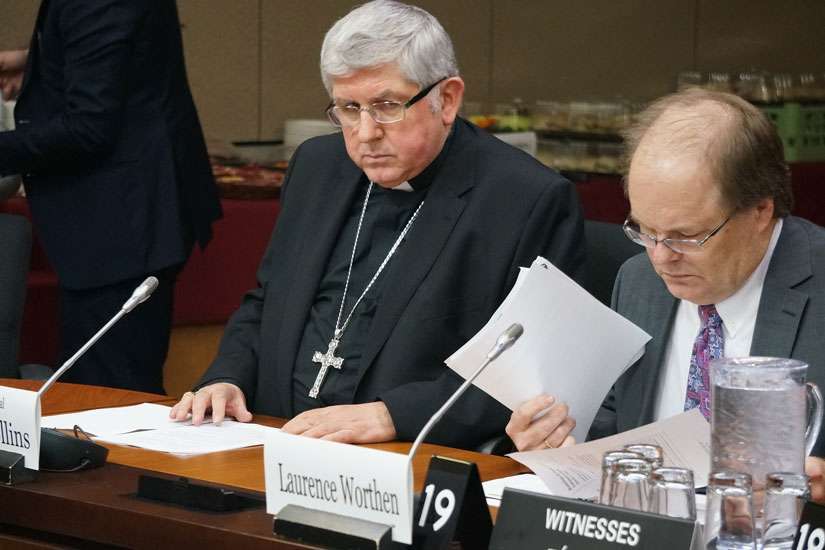For centuries, faith-based organizations and communities have cared for the most vulnerable in our country, and they do so to this day. We know what it is to journey with those who are facing great suffering in mind and body, and we are committed to serving them with a compassionate love that is rooted in faith and expressed through the best medical care available.
We were brought together by a common mission:
o To respect the sanctity of human life, which is a gift of God;
o To protect the vulnerable; and,
o To promote the ability of individuals and institutions to provide health care without being forced to compromise their moral convictions.
It is because of this mission that we cannot support or condone assisted suicide or euthanasia.
Death is the natural conclusion of the journey of life in this world. As the author of the Book of Ecclesiastes wisely observed long ago: “The dust returns to the earth as it once was, and the life breath returns to the God who gave it.” Death comes to us all, and so patients are fully justified in refusing burdensome and disproportionate treatment that only prolongs the inevitable process of dying. But there is an absolute difference between dying and being killed. It is our moral conviction that it is never justified for a physician to help take a patient’s life, under any circumstances.
We urge you to consider carefully the drastic negative effects physician-assisted suicide will have in our country.
Killing a person will no longer be seen as a crime, but instead will be treated as a form of health care. According to the Supreme Court, adults at any age — not just those who are near death — may request assisted suicide. Following the lead of some European countries whose experience with assisted suicide and euthanasia we disregard at our peril, the Provincial-Territorial Expert Advisory Group has already gone beyond the restriction of assisted suicide to adults, and has proposed that children be included.
The right to be put to death will, in practice, become in some cases the duty to be put to death, as subtle pressure is brought to bear on the vulnerable. Those called to the noble vocation of healing will instead be engaged in killing, with a grievous effect both upon the integrity of a medical profession committed to do no harm, and upon the trust of patients in those from whom they seek healing.
Even those doctors who support this legalization in principle may be uneasy when they experience its far reaching implications.
The strong message from the Supreme Court is unmistakeable: some lives are just not worth living. We passionately disagree.
In light of all this, it is clear that reasonable people, with or without religious faith, can have a well-founded moral conviction in their conscience that prevents them from becoming engaged in any way in the provision of assisted suicide and euthanasia. They deserve to be respected.
It is essential that the government ensure that effective conscience protection is given to health care providers, both institutions and individuals. They should not be forced to perform actions that go against their conscience, or to refer the action to others, since that is the moral equivalent of participating in the act itself. It is simply not right or just to say: you do not have to do what is against your conscience, but you must make sure it happens.
Our worth as a society will be measured by the support we give to the vulnerable. People facing illness may choose to end their lives for reasons of isolation, discouragement, loneliness or poverty, even though they may have years yet to live. What does it say about us as a society when the ill and vulnerable in our midst feel like burdens? Often, a plea for suicide is a cry for help. Society should respond with care and compassionate support for these vulnerable people, not with death.
Proper palliative care to date is not available to the majority of Canadians. It is a moral imperative for all levels of government in our country to focus attention and resources on providing that care, which offers effective medical control of pain, and even more importantly, loving accompaniment of those who are approaching the inevitable end of life on earth.
(Cardinal Thomas Collins is the archbishop of Toronto.)


